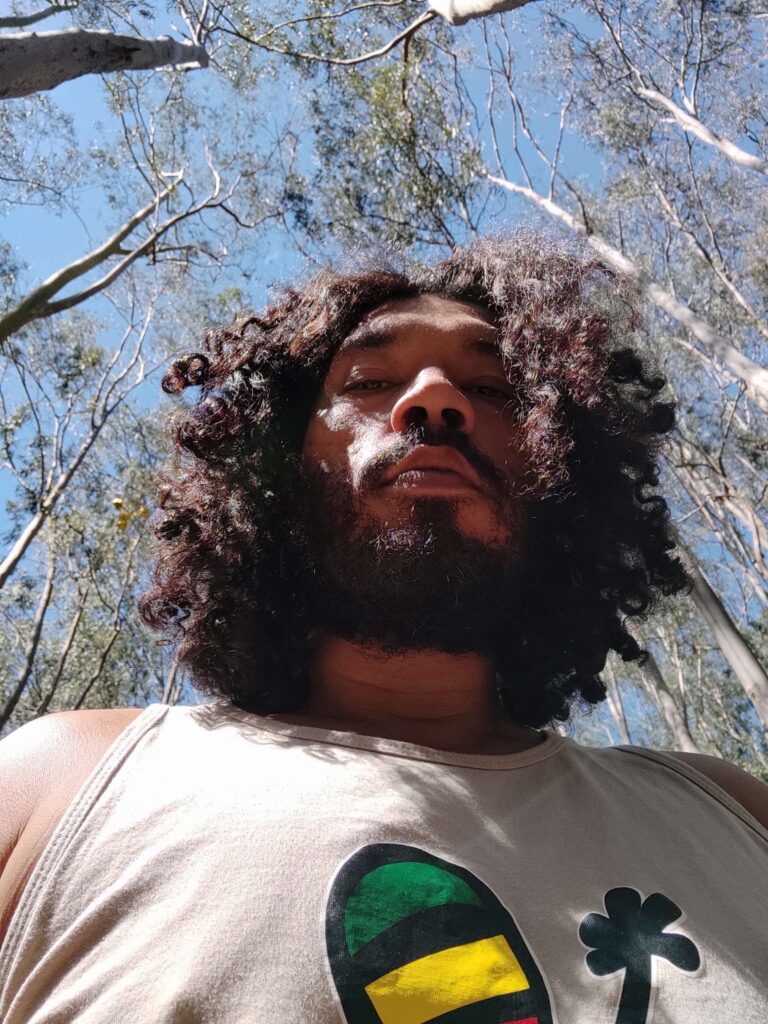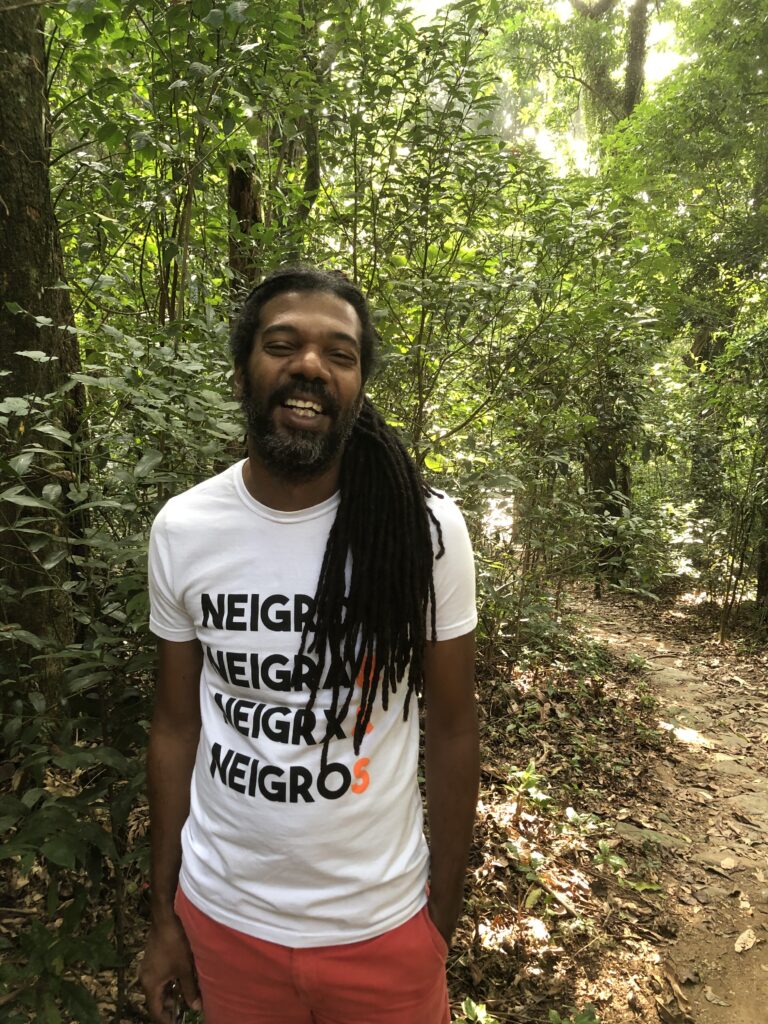
MEET OUR PEOPLE
Professor Antonio Castro – A trajectory
Antonio Alves de Castro Junior was born in Tijuca, lived for many years in Glória and Catete, but it was in the northern district of Rio that he lived most of his life. He studied Letters at the Federal University of Rio de Janeiro, at Ilha do Fundão campus, where he graduated as a professor of Portuguese and Portuguese-language literature in 2009. There, he attended the Portuguese course for foreigners, as a listener, in order to prepare to teach classes he was invited to teach.
He worked informally until 2010, when he started working at the now-defunct Bridge Brazil, under the coordination of Verônica Horta, a key person in his professional career.

It was also at this time that he adopted the pseudonym “Avati”, because of a poem contest held at the university, in which one had to participate using an original name.
The degree obtained at the Candido Mendes University brought an opportunity that the Federal University could not contemplate: a complete internship, from literacy to high school, in a Montessori school. The experience at the Mei Mei school, under the supervision of the director Sonia Maria Braga, culminated in a crucial learning experience for the formation of a humanized teacher, attentive to details and knowledgeable of a system that truly seeks the learner’s autonomy. At the Mei Mei library, he got in touch with readings about the Waldorf School and the experience of Antonio Carlos Gomes da Costa’s “School without a classroom”, responsible for expanding his pedagogical horizons even further.
He has been standing out as a Portuguese language teacher for foreigners, in the formation of groups and individuals, both for the regular course and for the preparation for the CELPE-Bras, the certificate of proficiency in the Portuguese language. However, restless with the cries of the large community of blacks, mixed race and indigenous people in Rio, and Brazil, he thought that language education should not be a job only for specialists in the grammar of the language, but a responsibility of the community of professionals who can transmit knowledge of the profession they exercise, as well as the language they speak. Thus, the “Pedagogy of the Quilombo” was born, an educational practice that seeks to learn Portuguese as a consequence of the learner’s interaction with the entire community that surrounds him. The development of the idea took place thanks to the reunion with Professor Marcos Valois, a former college and work colleague. Together, they built the Amefrican Cultural Institute – Aracoara.
The institute appears blessed by the wisdom of Lélia Gonzalez, who thought of Brazil as the land of the encounter between the American and the African, under the bloody domination of the European colonizer. In the quilombo, this meeting promoted resistance, collaboration and development. A relationship that extends to the present day as essential for the survival of hundreds of communities of black, mixed race and indigenous people in this country. And it is in this bias that Professor Antonio Castro places himself as an educator of foreigners and Brazilians; a promoter of culture, knowledge, experiences of “dirt and asphalt”, of green and gray, of all the contradictions that build this nation, its persecutors and survivors.
Marcos Valois
Marcos graduated in the end of 2008, the same year his daughter was born, but he started teaching back in 2006 in a NGO’s and was always aware of the importance of returning to the community the investment in studies. Teaching Portuguese and English in private schools in the outskirts of Rio de Janeiro, in these areas he included projects such as adult schooling, admission exams for universities, and with infants and younglings helping them not only with formal qualifying education but also with the transformation character of being a role model for the kids.
In 2010 a big opportunity came in, with the possibility to teach Portuguese for foreigners in a freshly-opened school.

This school had a social character to raise funds for an orphanage that was located outside the city of Rio de Janeiro. For 6 year he dedicated exclusively to that school, where he gained a lot of experience besides unique opportunities such as teaching for the University of Delaware, from the United States.
After that time he dedicated to private Portuguese classes for foreigners around the world: Rio, Bratislava (Slovakia) until he arrived in Kuwait City in 2016. In these 4 year in Kuwait, he joined the Elit Institute, where he developed workbooks and promoted Brazilian culture in a very far away country.
Back to Brazil in 2020 he joined an online project called A Ponte Para Pretxs, to teach English as a volunteer for black people. During this period he kept his Portuguese private classes and joined a small school to help 10 year old kids in admission exams for primary school.
In 2021 he reunited with Antonio, one of his good friends at University and the established Instituto Aracoara, that aims to teach Portuguese for Foreigners in an Amefrican point of view.
PEDAGOGY OF THE QUILOMBO
LEVELS & PRICES

Portuguese for foreigners
Orgulhosamente desenvolvido por Akili Design ♡
